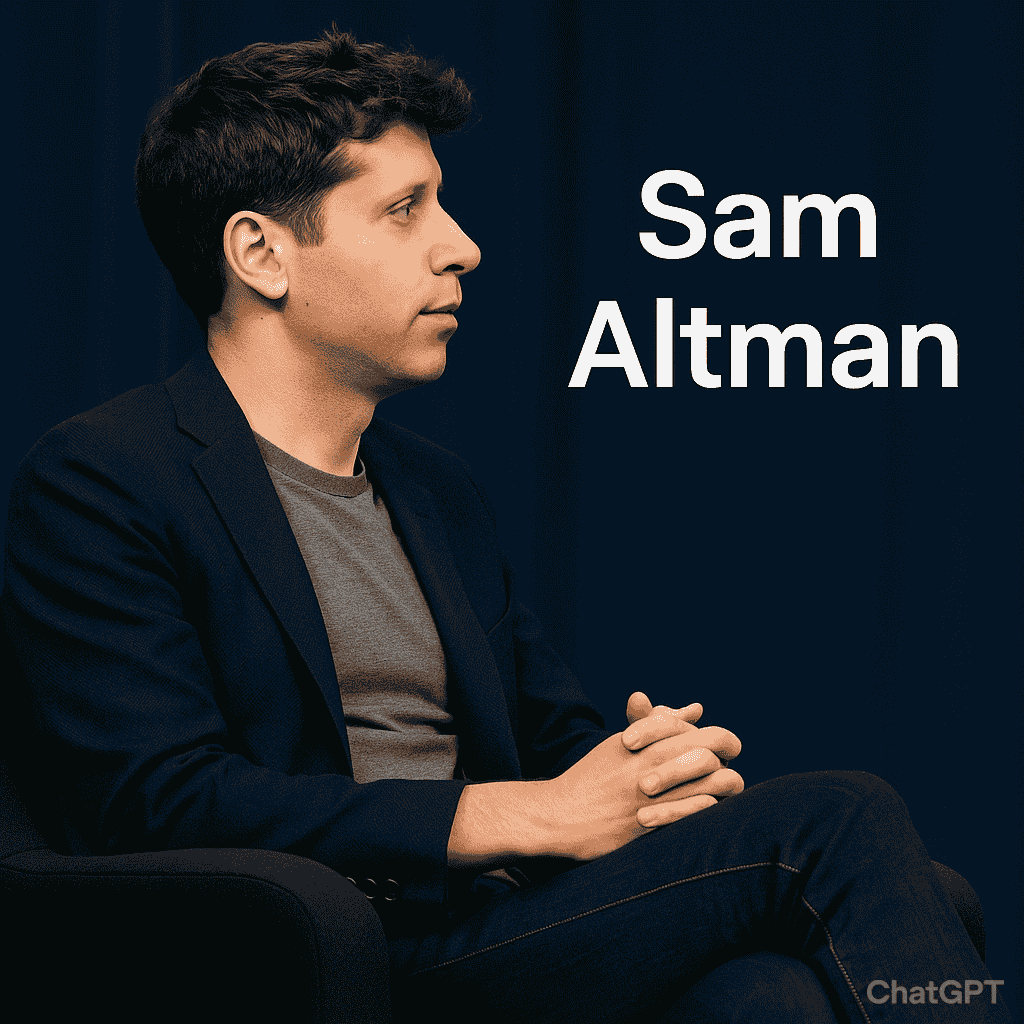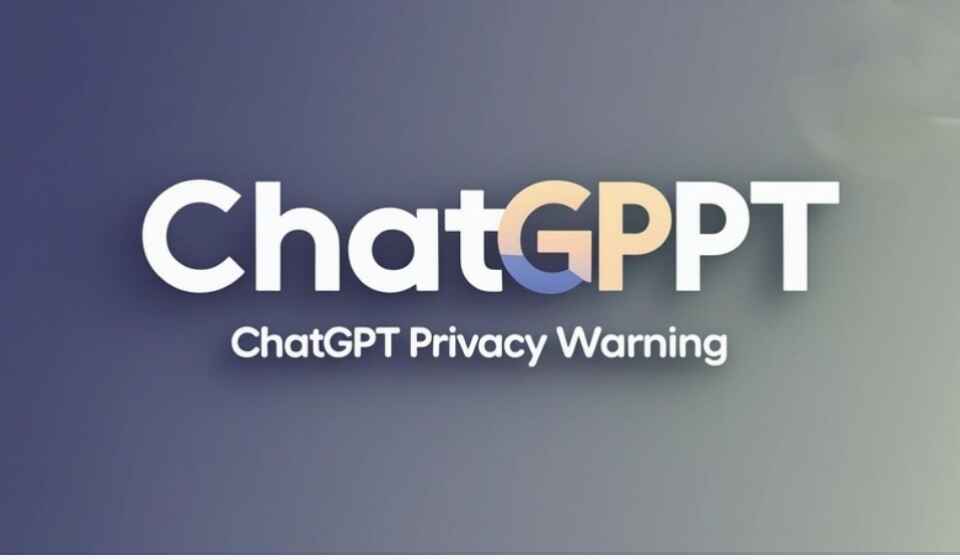This week, a surprising ChatGPT privacy warning has made users question how secure their AI conversations really are…..If you’re anything like me, you’ve probably asked ChatGPT some pretty personal things. Maybe you’ve vented about a rough day. Maybe you’ve asked it for relationship advice. Or even opened up about anxiety or struggles with focus. Sounds familiar?
But here’s the twist — none of that is legally private.

Recently, OpenAI CEO Sam Altman made headlines by saying something that honestly shocked me (and a lot of users). ChatGPT conversations don’t have the same confidentiality protections as therapists or lawyers. That means if push comes to shove — your chats can be revealed in court.Let’s break this down — in plain English — and talk about what it means for you, your privacy, and even your productivity. ChatGPT privacy warning. ChatGPT Privacy Warning.
What Exactly Did Sam Altman Say?
Altman appeared on Theo Von’s podcast (July 2025) and got candid about something many of us didn’t expect him to say out loud: “Right now, your conversations with ChatGPT are not protected under any legal privilege… We could be legally required to produce that info. I think that’s really screwed up.”(Source: TechCrunch)
According to TechCrunch, Sam Altman has openly stated that conversations with ChatGPT are not protected by legal confidentiality. This is a significant warning for users treating AI as a substitute for real human interaction.

In simple words If you told ChatGPT something super personal, thinking it’s between you and the AI — it’s not. Not legally, at least.
Real Life Example: Why This Matters More Than You Think
Let’s say you asked ChatGPT for help writing a letter to your boss about harassment — or about starting divorce paperwork — or even just dealing with depression.If there’s ever a legal investigation and those chats exist, a subpoena could force OpenAI to hand them over.That’s scary.And in today’s world, where AI tools are becoming like digital companions, this lack of legal protection feels like a huge blind spot. ChatGPT privacy warning
The Data Doesn’t Lie
Here’s what makes it worse: millions of people use ChatGPT as an emotional outlet.
A recent Pew Research Center survey in 2025 showed 28% of Gen Z users use AI chatbots to talk about mental health or emotional well-being.Even more shocking — 1 in 5 users in the same survey believed their conversations were “private and protected.”But they’re not. And Sam Altman just confirmed it. ChatGPT privacy warning
ChatGPT Privacy Warning: Should You Still Use It for Productivity?
Not at all — but you need to be smart about it.
I personally use ChatGPT to: Outline my blog posts 📝, Brainstorm headlines, Learn new tools (like MidJourney prompts or SEO tricks), Organize my day with Pomodoro technique breakdowns, And honestly, it’s been a game-changer. But I’ve also learned not to dump sensitive stuff into it. If you’re discussing trade secrets, private conflicts, finances, or personal trauma — don’t assume it’s a safe vault. It’s not. ChatGPT privacy warning
What Is The Solution (Starting Today)
Here’s what I recommend — and what I’ve started doing myself and to you :
1. Use Anonymous Mode (if available) : Some AI platforms are starting to roll out features that don’t track identity or save chats. OpenAI is testing this — use it if you can.
2. Turn Off Chat History : OpenAI lets you disable chat history — this means your conversations won’t be used to train their models and are auto-deleted within 30 days.> To do this: Go to Settings → Data Controls → Turn Off “Chat History & Training”
3. Don’t Rely on ChatGPT as a Therapist : If you’re struggling mentally or emotionally — please, please see a real professional. ChatGPT isn’t a replacement. And it isn’t bound by confidentiality like doctors or therapists are.
4. Use Enterprise Tools for Work : If you’re using AI for business, switch to ChatGPT Enterprise or similar secure platforms. These come with strong data protection policies. ChatGPT privacy warning
Final Words from Me
Look, I’m not saying you should be paranoid. I still use ChatGPT every single day — for writing, research, and brainstorming. It saves me hours.But I also don’t pretend it’s my therapist.Treat AI as a super-smart assistant. Not a vault.Because until the law catches up, your privacy is only as safe as the platform’s policy — and policies can change.Stay smart. Stay productive. And share only what you’re okay with being seen. ChatGPT privacy warning
Liked this article? Share it with someone who uses ChatGPT without knowing this. You might just save them a headache — or worse.
For more information and updates, visit Home
Q : Is my ChatGPT chat legally private?
And : No. Not protected like a talk with a therapist or lawyer.
Q : Can my messages be used in court?
Ans : Yes. If legally requested, OpenAI might have to share them.
Q : Does ChatGPT save everything?
Ans : Only if chat history is on. It retains data for up to 30 days, unless disabled.
Q : So, should I stop using AI?
Ans : No! But be careful what you share. Use AI for productivity, not personal confessions.
- Tata Nano Electric 2025: Compact, Stylish, and Shockingly Affordable
- OpenAI’s GPT‑5 Is Here: A Smarter, Faster AI — Available Now
- Forecasting Bitcoin’s Returns Over the Next Decade
- Oppo Find X9 Leak Reveals 200MP Telephoto Camera, 7500mAh Battery & Dimensity 9500 Chipset
- Tech Startup Offers $500 Incentive for Playing Cupid Among Employees in 2025